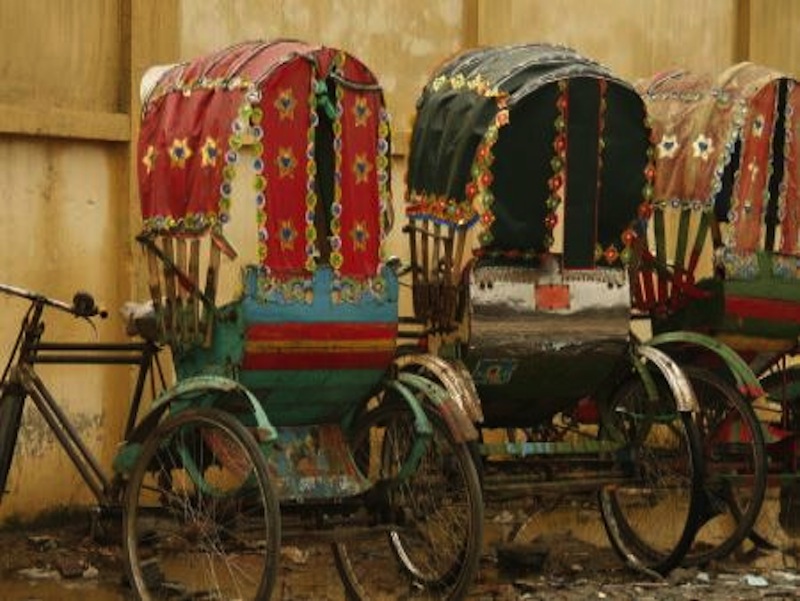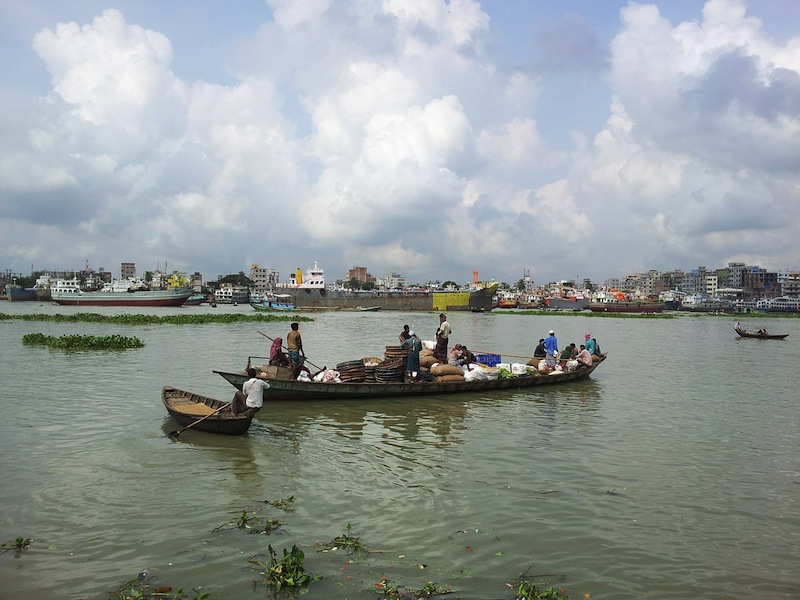
Silvia is a friend of Expatclic, who has just returned to Dhaka, Bangladesh, having lived there from 2005 to 2008. We thank her for this article filled with interesting tips and information.
I arrived in Dhaka for the second time at the end of January this year. The first time round, in 2005, I was with my family (with two children aged 13 and 12 in tow). It was July. The humidity was almost unbearable for us westerners.
Shortly afterwards, on 17 August, 400 rudimentary bombs exploded simultaneously in different parts of the country. Fear kept us expats close to our homes in the so-called ‘diplomatic’ areas, where security was tighter. The situation eventually calmed down, and apart from the frequent hartals – violent strikes – or political demonstrations, life returned to what was almost normal.
My husband and I don’t like ‘going back’, for two reasons: a) we know that the overwhelming majority of people we knew will have left for other parts of the world, and b) unfortunately, you lose that wonderful spirit of adventure that pushes you to explore a new place with a light, cheerful and trusting spirit.
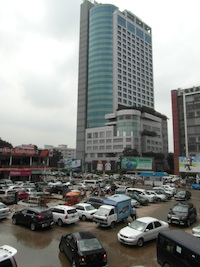 Years on, I found Dhaka changed: in Gulshan 2 and Baridhara, the areas where most expats live, huge modern, luxurious high-rises are sprouting everywhere. I wonder whether this cement explosion, with no adequate regulatory plan, is really necessary in a city like Dhaka, which, in my opinion, can be defined as ‘the city of contradictions’: mega-fancy tower blocks on the one hand, and on the other, people living on the streets, and kids picking over the garbage alongside the crows.
Years on, I found Dhaka changed: in Gulshan 2 and Baridhara, the areas where most expats live, huge modern, luxurious high-rises are sprouting everywhere. I wonder whether this cement explosion, with no adequate regulatory plan, is really necessary in a city like Dhaka, which, in my opinion, can be defined as ‘the city of contradictions’: mega-fancy tower blocks on the one hand, and on the other, people living on the streets, and kids picking over the garbage alongside the crows.
These innumerable building sites, which are operational day and night, have obliterated the few reference points in this city which was already chaotic. It’s disturbing to arrive at what you thought was a familiar shop of home, and find something completely different has taken its place.
Right now we are looking for a furnished apartment: an arduous task, since available apartments are too big for two people, and it’s hard to find furnishings to suit our western tastes.
Last time I had brought all our personal belongings, and bought, in Dhaka, lovely, comfortable bamboo furniture. Furnishing a flat with bamboo furniture is quite simple and economical, but you need a good dose of patience to find everything within a reasonable period of time. Anyone who has been to Dhaka will know that city traffic is absolutely impossible at certain times of day: you can spend hours on a simple one-shop outing! Unfortunately I have found that the traffic, noise, and air pollution have worsened over the years.
During my first stay in Bangladesh I was lucky enough to visit different parts of the country. When you get out of the city, it’s a real treat to experience the quiet landscapes, the beauty of nature, and the vibrant colours in the villages. Not only are you catapulted into a bygone bucolic world, but you can enjoy the simple hospitality of local people. I remember going out on weekend mini-cruises on rented boats. These were a wonderful opportunity to clear the mind and take stunning photos. I highly recommend these tours to anyone moving to Dhaka.
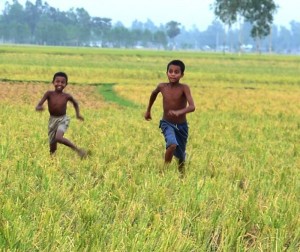 As Paola writes, you can invent the life you want in Dhaka: some people like to frequent expat clubs, learn a sport, organize competitions or events; others simply like to help those in need.
As Paola writes, you can invent the life you want in Dhaka: some people like to frequent expat clubs, learn a sport, organize competitions or events; others simply like to help those in need.
A short while after I arrived in Dhaka the first time, once I’d organized our home and settled the kids into their nth international school, I met a missionary, Mother Luisa, from Piacenza, who headed a Christian centre, the Carlotta Centre in Bashundara, which offered pre-school and after-school activities for street kids, while at the same time helping their families, giving them food and clothing.
Mother Luisa is an extraordinary woman: she is over eighty, filled with initiative, and always ready to help those in need. At that time she was having a hard time paying the teachers of her support classes. Together we decided to offer Italian cooking courses to expats’ domestic staff, to raise funds to help the street kids.
The courses quickly became a great success. I remember that on the first day, 32 participants showed up at the Carlotta Centre to learn Italian cooking! We worked with simple recipes, easy to make, based mostly on locally available ingredients. I ran the courses and put together a recipe book in English, which later, thanks to the help of an English friend, was translated into Bangla.
I learnt that the book could be bought at Dhaka airport: what an honour! Several women of different nationalities volunteered to help me in my venture: one taught hygiene, another showed how buffets could be organized, another did a pastry course, another demonstrated her favourite recipes, and so on. The courses still exist to this day, with other Italian volunteers running them. As soon as I have my apartment organized, I will go back to the Carlotta Centre to meet these wonderful women
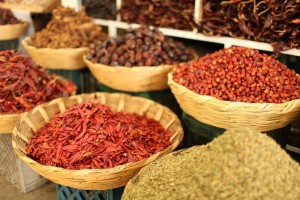 As I wait for my husband to return from the Sundarbans, the mangrove forests in the Bay of Bengal (Gary heads a project which aims to save the Bengal tiger), apart from house-hunting, I’m having fun exploring all the new restaurants that have sprung up over the last few years in Gulshan 2. I reckon that with a few precautions, those tummy bugs that terrify expats can be avoided. In the Banani neighbourhood, for example, Road 11 is packed with lovely places where you can have anything from an excellent cappuccino to Asian delicacies.
As I wait for my husband to return from the Sundarbans, the mangrove forests in the Bay of Bengal (Gary heads a project which aims to save the Bengal tiger), apart from house-hunting, I’m having fun exploring all the new restaurants that have sprung up over the last few years in Gulshan 2. I reckon that with a few precautions, those tummy bugs that terrify expats can be avoided. In the Banani neighbourhood, for example, Road 11 is packed with lovely places where you can have anything from an excellent cappuccino to Asian delicacies.
In my opinion, in Dhaka you need to be daring. You mustn’t fear the constant looks from so many people who stare at you, curious go see how this ‘white monkey’ is behaving. Rather than rudely shunning local people, why not engage in a bit of complicity? If you show that you, too are curious, their smiles will light up their faces like the morning sun.
Silvia
Dhaka, Bangladesh
February 2016
Translated from Italian by Paola Fornari


